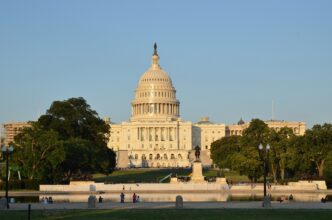Executive Summary
- Senator Bill Hagerty has introduced S. 3129, a bill to amend the Federal Election Campaign Act and tighten restrictions on foreign money in U.S. elections.
- The legislation expands the ban on foreign contributions to include state and local ballot initiatives and specific activities like voter registration and get-out-the-vote efforts.
- It aims to close loopholes by prohibiting indirect contributions and making it illegal for any person to knowingly facilitate such violations.
- The bill also introduces new privacy protections for donors to tax-exempt organizations, with significant penalties for federal employees who improperly disclose donor information.
WASHINGTON – U.S. Senator Bill Hagerty (R-TN), along with seven cosponsors, has introduced legislation aimed at strengthening prohibitions against foreign financial influence in American elections. The bill, designated S. 3129 and titled the “Preventing Foreign Interference in American Elections Act,” seeks to amend the Federal Election Campaign Act of 1971 with broader restrictions on contributions from foreign nationals.
Expanding Contribution Bans
The proposed legislation expands the existing ban on foreign money to cover state and local ballot initiatives, a significant extension beyond federal campaigns. It also clarifies that foreign funds cannot be used for specific electoral activities, including voter registration drives, ballot collection, get-out-the-vote efforts, and any public communication that refers to a political party.
Closing Loopholes and Enforcement
To prevent circumvention of the law, the bill would make it illegal for any person to knowingly help or facilitate violations of the foreign contribution rules. It also specifically addresses indirect contributions, defining them in a way that would penalize individuals who provide funds to another person or organization with the knowledge that they will be used for prohibited political purposes.
In terms of enforcement, the bill includes enhanced measures for compliance. Political committees and parties would be required to include a certification in their financial reports, made under penalty of perjury, affirming their adherence to the restrictions. The legislation also allows individuals accused of violations to submit a certification that no violation occurred as part of their defense, while limiting the scope of investigations to the facts necessary to determine if a rule was broken.
Donor Privacy Protections
A notable component of the bill focuses on protecting the privacy of donors to tax-exempt organizations. Under the proposed rules, federal entities would be prohibited from collecting or disclosing information identifying donors to these organizations, except under specific circumstances, such as for tax-related disclosures. The legislation stipulates that federal employees who violate these privacy provisions could face severe penalties, including fines and imprisonment.






